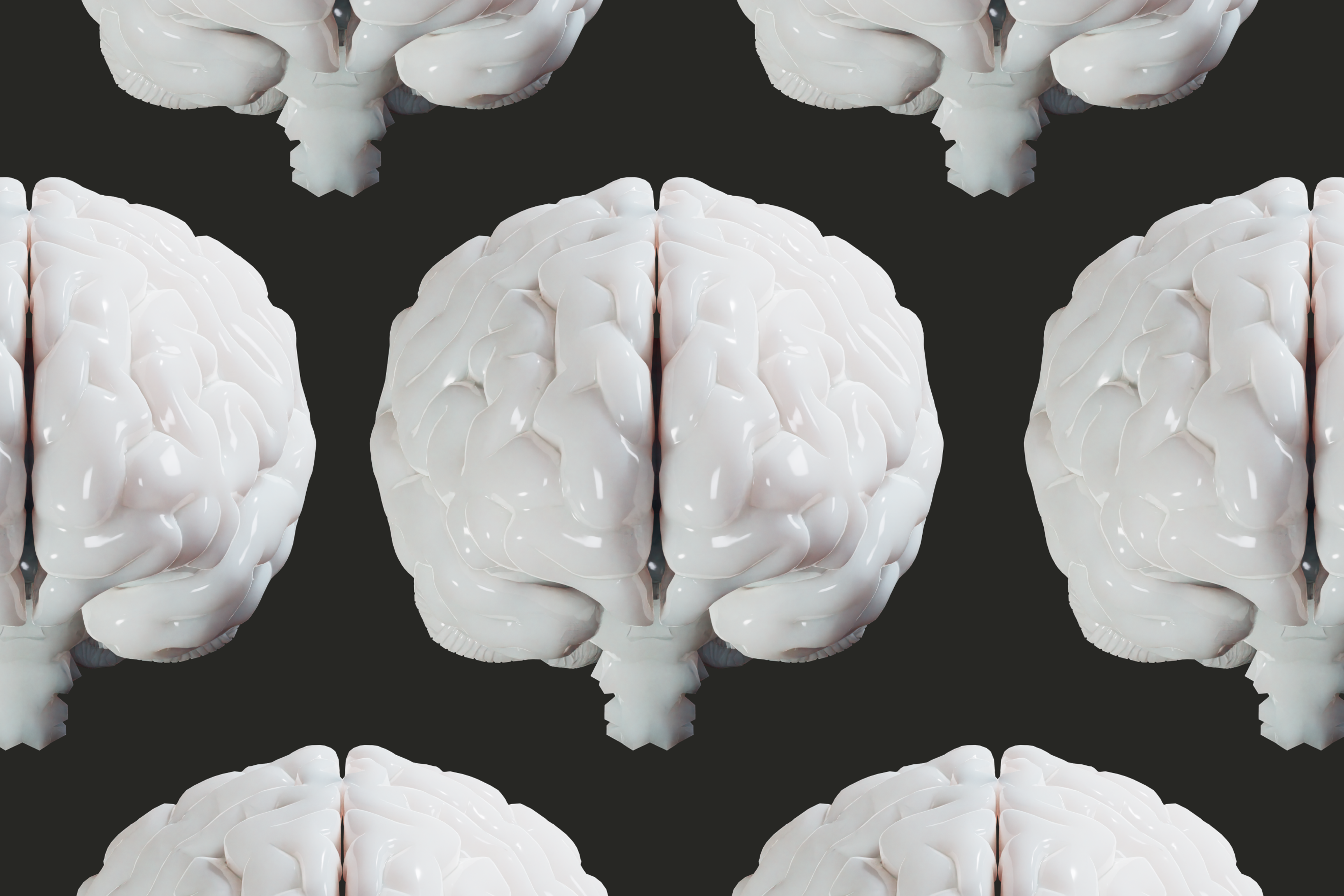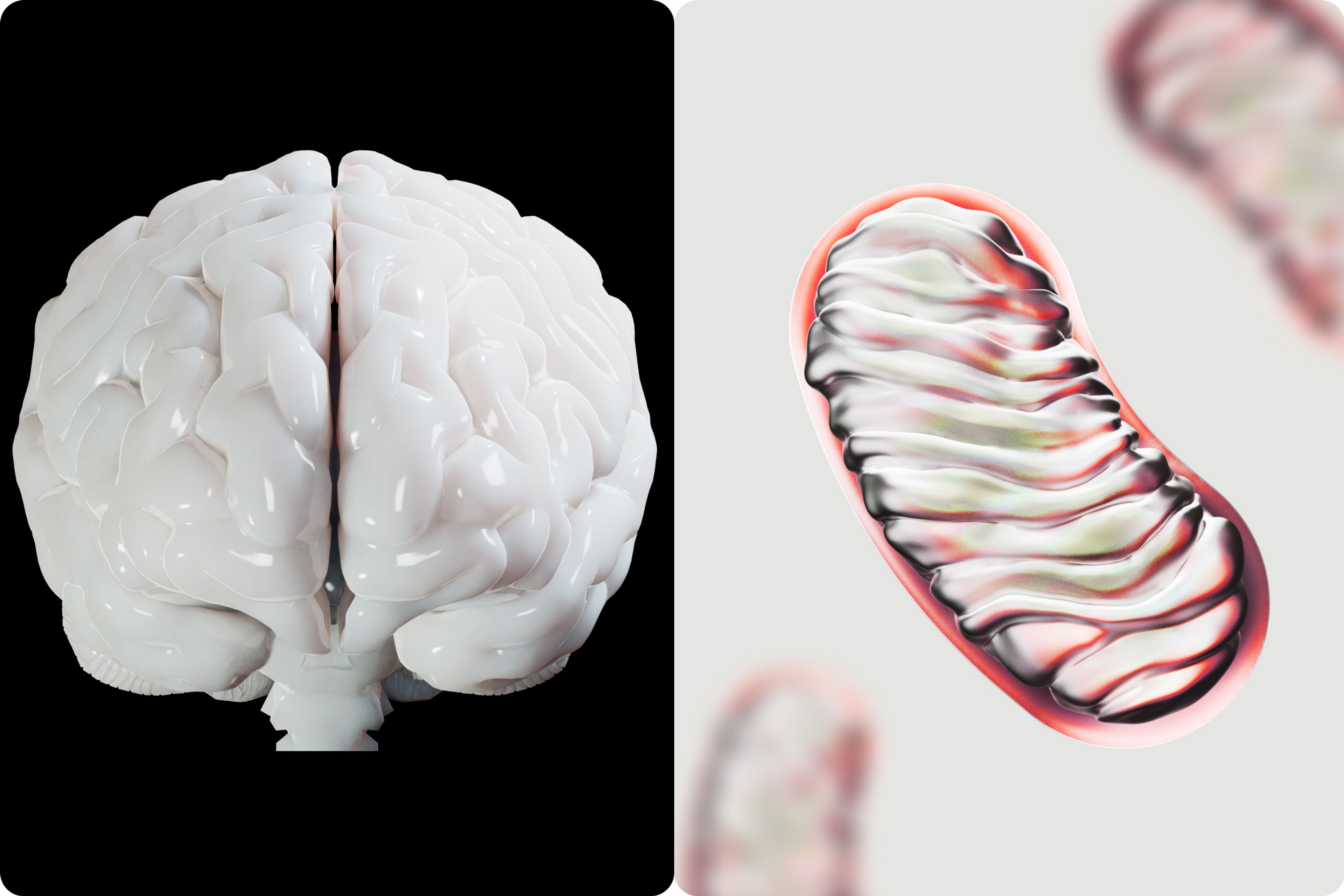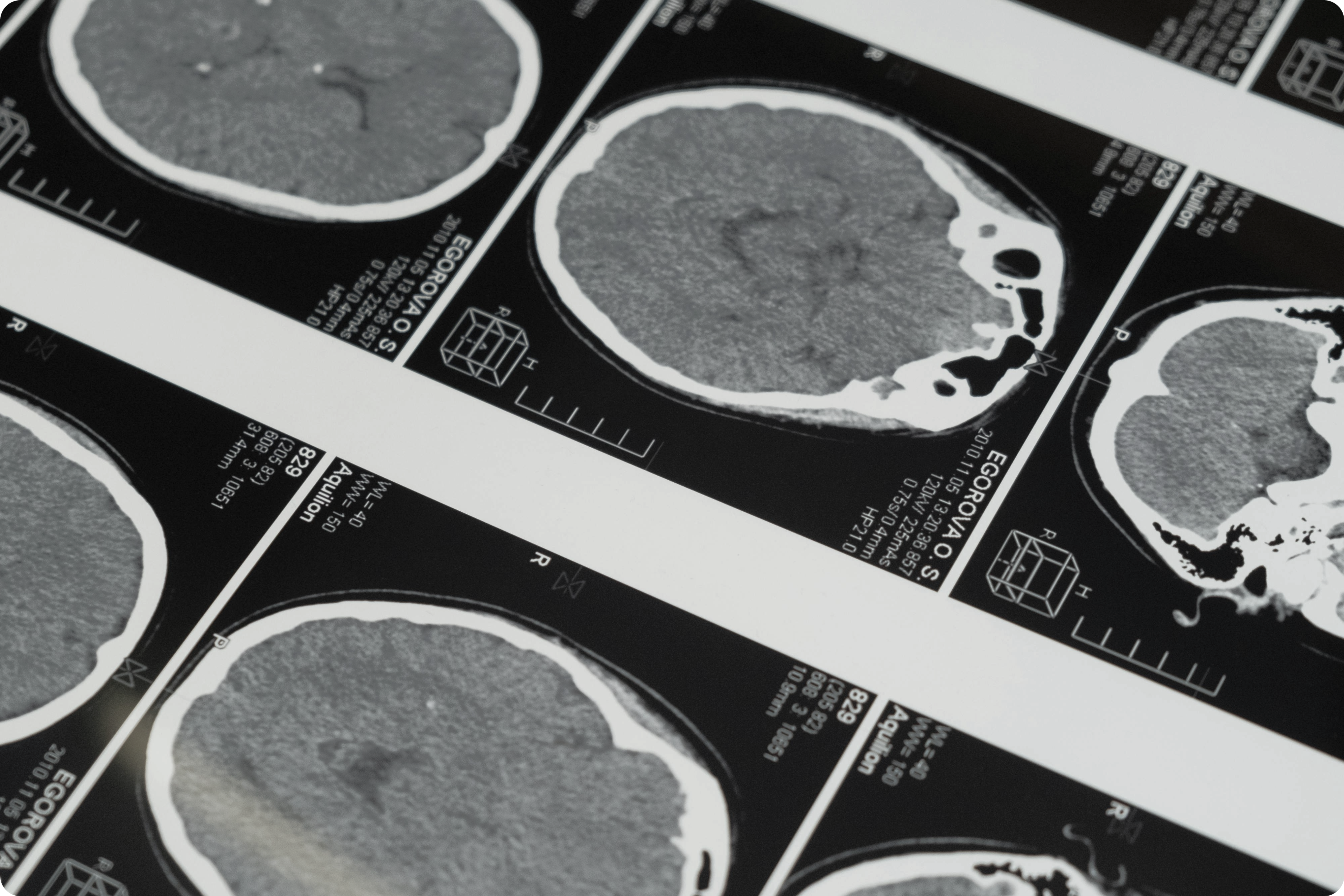Fuel Your Brain Mitochondria for Better Cognitive Health
Nourishing your mitochondria in the brain supports cognitive health. Learn the habits to toss to support your brain mitochondria for healthy aging.

What to know
Mitochondria, often called the "powerhouses" of our cells, are essential for cognitive health, playing a key role in energy production and brain function as we age.
Factors such as aging, stress, poor diet, lack of sleep, a sedentary lifestyle, and environmental toxins can contribute to mitochondrial dysfunction, accelerating cognitive decline.
Well-functioning brain mitochondria support neuroplasticity and energy production, critical for preserving memory, learning, and problem-solving abilities.
Healthy lifestyle habits, including regular exercise, a nutrient-rich diet, adequate sleep, and stress management, promote cognitive resilience with age.
Addressing other modifiable factors that can damage mitochondria, such as reducing stress and avoiding environmental toxins, can delay age-related cognitive decline.
The mitochondria, the tiny power plants within our cells, are like little engines that help the body run smoothly. It is well-established that optimally functioning mitochondria support our physical health, but do you know there are also trillions of mitochondria in the brain that support cognitive health as we age?
If you want to safeguard your brain health and stay sharp through the years, taking steps to preserve your brain mitochondria is the perfect place to start.
A quick recap on mitochondria
The mitochondria are microscopic energy producers found in almost every cell in the body. They are often called “cellular powerhouses” for their critical role in producing energy for the body’s vital functions.
Beyond their role in daily energy tasks, the mitochondria also play an integral role in regulating metabolism, managing oxidative stress, and supporting the health of our cells as we age. But the benefits of highly functioning mitochondria don’t stop with our physical health - they are just as essential for brain health.
Since our bodies and brains need them to perform necessary activities, prioritizing mitochondrial health is paramount.
To keep our mitochondria in optimal condition, they must recycle themselves regularly. This process is known as mitophagy, where damaged, defective mitochondria are removed and recycled into better functioning versions of themselves. This process is a form of autophagy, the body’s cellular control system, to ensure damaged cells don’t accumulate to unhealthy levels.
This cellular cleanup is essential for our brain to keep it functioning optimally and to delay age-related cognitive decline.[1]

Mitochondria in the brain
The brain is one of the hungriest organs in the human body. Despite only making up about 2% of our body weight,[2] the brain consumes roughly 20% of our energy daily.[3]. This requires quite a large amount of functioning mitochondria, so whoever invented the term “brainpower” was clearly onto something.
According to research, brain cells could have hundreds to thousands of mitochondria in them.[4] When you factor in how many brain cells we have (potentially billions), it’s clear the mitochondria are central to every aspect of brain function.[5]
The brain is one of the most complex organs, and it operates via a very energy-demanding signaling process. Emerging research shows that healthy mitochondria are closely tied to brain function, while damaged mitochondria can negatively impact the brain.[6]
Brain energy
Well-functioning brain mitochondria can support a wide range of brain activities, from basic day-to-day tasks like tying your shoes to advanced executive functions like problem-solving. This is primarily because mitochondria in the brain, like all mitochondria, produce a molecule called adenosine triphosphate (ATP).
ATP is the primary energy currency that generates everything from muscle function to crucial brain functions. [7]The brain mitochondria need to produce abundant ATP for healthy brain function, and a depleted ATP supply is associated with more significant brain cell death.[8]
Properly functioning mitochondria in the brain also support neuroplasticity, the brain’s ability to adapt, organize, and form new connections and memories.[9]
In short, the mitochondria maintain optimal quality control for brain health, and keeping them in tip-top shape can keep your brain resilient to age-related decline.

How damaged mitochondria trigger inflammation
As a normal hallmark of aging, the mitochondria risk becoming damaged or dysfunctional over time. This can contribute to inflammation in the brain by increasing oxidative stress. This stress results from excess free radicals in the body⸺unstable molecules that can trigger inflammation and negatively impact health.[10]
Long-term, low-grade inflammation is referred to as inflammaging. This age-related inflammation can increase the risk of health problems, including brain health, over time.
What triggers mitochondrial dysfunction in the brain
Mitochondrial dysfunction in the brain can be triggered by several factors, including the normal aging process. While some level of dysfunction is inevitable with age, the amount of mitochondrial damage can be exacerbated by other factors such as your stress level, diet quality, sleep, and level of physical activity.
These factors can damage mitochondrial DNA, reduce energy production, and impair the brain's ability to function optimally over time.
Age
Brain function and energy can gradually decline as we age due to poorly functioning mitochondria. Over time, oxidative stress, mitochondrial DNA damage, and a decreased number of healthy mitochondria result in less efficient energy production in the brain.[11]
This decline results in less ATP and an increase in harmful free radicals. These compounds can further damage the mitochondria in the brain, rendering them less efficient.
These changes can surface as memory problems and cognitive impairments, often perceived as a normal part of aging.[12] Symptoms of brain aging may include word-finding difficulties, trouble concentrating, or a reduced problem-solving ability.

Stress
While you can’t avoid all stress in life, reducing its severity may preserve brain health as you age. This is because chronic stress can also contribute to mitochondrial dysfunction in the brain. Several studies have shown that increased psychological stress is associated with worsened mitochondrial function.[13] While the mitochondria try to hold strong as long as possible, they won’t function as optimally if you’re in a constant state of stress.
Poor diet
What you eat also plays a role in maintaining healthy brain mitochondria.[14] In particular, a diet high in ultra-processed foods like cookies, candy, potato chips, and sugary beverages can harm the brain. Overdoing it on saturated fats can also create a negative effect on mitochondrial function.[15]
And when it comes down to it, overconsuming calories in general can worsen mitochondrial dysfunction in the brain.[16]
On the other hand, prioritizing nutritious foods, such as those typically seen in a Mediterranean-style diet, can positively support brain health. Research also suggests that ketogenic diets and the DASH diet (Dietary Approaches to Stop Hypertension) may help support brain and mitochondrial health with age. [17]Intermittent fasting and calorie restriction also positively affect brain mitochondria and overall longevity.
Inadequate sleep
Sleep problems increase with age, with close to 75% of older adults experiencing symptoms of insomnia.[18] While some may accept this as a normal part of aging, it doesn’t have to be.
Poor sleep can lead to changes in mitochondrial DNA in the brain and, through this, accelerate cellular aging.[19] During sleep, the brain undergoes crucial restorative processes, including mitochondrial repair and removing metabolic waste products. [20]When sleep is insufficient, these processes can be disrupted, rendering the mitochondria less capable of producing energy efficiently.
If you’re having trouble getting enough sleep, speak to your doctor.
Sedentary lifestyle
Research shows many older adults are sedentary for the majority of their day. [22]This lack of physical activity is another factor that can impact brain mitochondria. Too much inactivity can negatively impact mitochondrial function, partially due to impaired glucose (sugar) management.[21]

Environmental toxins
The mitochondria are highly susceptible to damage from environmental toxins. Overexposure to environmental toxins like heavy metals, pollution, phthalates, pesticides and herbicides, and others can impact mitochondrial health and brain function over time. [23]These toxins can impair energy production in the mitochondria, which can trigger oxidative stress and nerve damage in the brain.
While all of these factors can trigger mitochondrial dysfunction in the brain, most of these are modifiable. If you’re unsure where to start, begin with the factors most pertinent to your life so you can reap the most considerable benefits.
For example, if you’re leading a sedentary lifestyle, start by going for a short walk every morning. Research shows that even adding light physical activity, like moving around more throughout the day, can improve brain mitochondrial function and health.[24]
Wrapping it up
Mitochondria, the "powerhouses" of our cells, are essential for maintaining cognitive health as we age. Chronic stress, a poor diet, inadequate sleep, environmental toxins, and a sedentary lifestyle can accelerate mitochondrial dysfunction with age, which can affect cognitive function.
Healthy lifestyle approaches such as regular physical activity, a nutritious diet, and better sleep can improve mitochondrial health. Any steps to improve your mitochondrial health will pay dividends in promoting cognitive resilience as you age.
Authors

Dietitian-Nutritionist, and Health Content Writer

Reviewed by
Senior Manager of Nutrition Affairs
References
- ↑
Li, A., Gao, M., Liu, B. et al. Mitochondrial autophagy: molecular mechanisms and implications for cardiovascular disease. Cell Death Dis 13, 444 (2022). https://doi.org/10.1038/s41419-022-04906-6
- ↑
Balasubramanian V. Brain power. Proc Natl Acad Sci U S A. 2021 Aug 10;118(32):e2107022118. doi: 10.1073/pnas.2107022118. PMID: 34341108; PMCID: PMC8364152.
- ↑
Song N, Mei S, Wang X, Hu G, Lu M. Focusing on mitochondria in the brain: from biology to therapeutics. Transl Neurodegener. 2024 Apr 17;13(1):23. doi: 10.1186/s40035-024-00409-w. PMID: 38632601; PMCID: PMC11022390.
- ↑
Misgeld T, Schwarz TL. Mitostasis in Neurons: Maintaining Mitochondria in an Extended Cellular Architecture. Neuron. 2017 Nov 1;96(3):651-666. doi: 10.1016/j.neuron.2017.09.055. PMID: 29096078; PMCID: PMC5687842.
Rango M, Bresolin N. Brain Mitochondria, Aging, and Parkinson's Disease. Genes (Basel). 2018 May 11;9(5):250. doi: 10.3390/genes9050250. PMID: 29751692; PMCID: PMC5977190.
- ↑
Scientists build largest maps to date of cells in human brain. National Institutes of Health (NIH). Published October 31, 2023. https://www.nih.gov/news-events/nih-research-matters/scientists-build-largest-maps-date-cells-human-brain
Herculano-Houzel S. The human brain in numbers: a linearly scaled-up primate brain. Front Hum Neurosci. 2009 Nov 9;3:31. doi: 10.3389/neuro.09.031.2009. PMID: 19915731; PMCID: PMC2776484.
- ↑
Song, N., Mei, S., Wang, X. et al. Focusing on mitochondria in the brain: from biology to therapeutics. Transl Neurodegener 13, 23 (2024). https://doi.org/10.1186/s40035-024-00409-w
- ↑
Shigetomi E, Sakai K, Koizumi S. Extracellular ATP/adenosine dynamics in the brain and its role in health and disease. Front Cell Dev Biol. 2024 Jan 18;11:1343653. doi: 10.3389/fcell.2023.1343653. PMID: 38304611; PMCID: PMC10830686.
- ↑
Alegre-Abarrategui J, Brimblecombe KR, Roberts RF, et al. Selective vulnerability in α-synucleinopathies. Acta Neuropathol. 2019;138(5):681-704. doi:10.1007/s00401-019-02010-2
- ↑
Cheng A, Hou Y, Mattson MP. Mitochondria and neuroplasticity. ASN Neuro. 2010 Oct 4;2(5):e00045. doi: 10.1042/AN20100019. PMID: 20957078; PMCID: PMC2949087.
- ↑
Nesci S, Spagnoletta A, Oppedisano F. Inflammation, Mitochondria and Natural Compounds Together in the Circle of Trust. Int J Mol Sci. 2023 Mar 24;24(7):6106. doi: 10.3390/ijms24076106. PMID: 37047080; PMCID: PMC10094238.
- ↑
Geary DC. Mitochondrial Functioning and the Relations among Health, Cognition, and Aging: Where Cell Biology Meets Cognitive Science. Int J Mol Sci. 2021 Mar 30;22(7):3562. doi: 10.3390/ijms22073562. PMID: 33808109; PMCID: PMC8037956.
- ↑
Bondy SC. Mitochondrial Dysfunction as the Major Basis of Brain Aging. Biomolecules. 2024; 14(4):402. https://doi.org/10.3390/biom14040402
- ↑
Picard, Martin PhD; McEwen, Bruce S. PhD. Psychological Stress and Mitochondria: A Systematic Review. Psychosomatic Medicine 80(2):p 141-153, 2/3 2018. | DOI: 10.1097/PSY.0000000000000545
- ↑
Kaliszewska A, Allison J, Martini M, Arias N. Improving Age-Related Cognitive Decline through Dietary Interventions Targeting Mitochondrial Dysfunction. Int J Mol Sci. 2021 Mar 30;22(7):3574. doi: 10.3390/ijms22073574. PMID: 33808221; PMCID: PMC8036520.
- ↑
Putti R, Sica R, Migliaccio V, Lionetti L. Diet impact on mitochondrial bioenergetics and dynamics. Front Physiol. 2015 Apr 8;6:109. doi: 10.3389/fphys.2015.00109. PMID: 25904870; PMCID: PMC4389347.
- ↑
Schmitt LO, Gaspar JM. Obesity-Induced Brain Neuroinflammatory and Mitochondrial Changes. Metabolites. 2023 Jan 5;13(1):86. doi: 10.3390/metabo13010086. PMID: 36677011; PMCID: PMC9865135.
- ↑
Kaliszewska A, Allison J, Martini M, Arias N. Improving Age-Related Cognitive Decline through Dietary Interventions Targeting Mitochondrial Dysfunction. Int J Mol Sci. 2021 Mar 30;22(7):3574. doi: 10.3390/ijms22073574. PMID: 33808221; PMCID: PMC8036520.
- ↑
Nguyen V, George T, Brewster GS. Insomnia in Older Adults. Curr Geriatr Rep. 2019 Dec;8(4):271-290. doi: 10.1007/s13670-019-00300-x. Epub 2019 Oct 22. PMID: 33312842; PMCID: PMC7731454.
- ↑
Han S, Kim DK, Jun SE, Kim N. Association of sleep quality and mitochondrial DNA copy number in healthy middle-aged adults. Sleep Med. 2024;113:19-24. doi:10.1016/j.sleep.2023.11.011
- ↑
Mauri S, Favaro M, Bernardo G, Mazzotta GM, Ziviani E. Mitochondrial autophagy in the sleeping brain. Front Cell Dev Biol. 2022 Aug 24;10:956394. doi: 10.3389/fcell.2022.956394. PMID: 36092697; PMCID: PMC9449320.
- ↑
Kerr NR, Kelty TJ, Mao X, et al. Selective breeding for physical inactivity produces cognitive deficits via altered hippocampal mitochondrial and synaptic function. Front Aging Neurosci. 2023;15:1147420. Published 2023 Apr 3. doi:10.3389/fnagi.2023.1147420
- ↑
Wheeler MJ, Dempsey PC, Grace MS, Ellis KA, Gardiner PA, Green DJ, Dunstan DW. Sedentary behavior as a risk factor for cognitive decline? A focus on the influence of glycemic control in brain health. Alzheimers Dement (N Y). 2017 May 2;3(3):291-300. doi: 10.1016/j.trci.2017.04.001. PMID: 29067335; PMCID: PMC5651418.
- ↑
Reddam A, McLarnan S, Kupsco A. Environmental Chemical Exposures and Mitochondrial Dysfunction: a Review of Recent Literature. Curr Environ Health Rep. 2022 Dec;9(4):631-649. doi: 10.1007/s40572-022-00371-7. Epub 2022 Jul 28. PMID: 35902457; PMCID: PMC9729331.
- ↑
Wheeler MJ, Dempsey PC, Grace MS, Ellis KA, Gardiner PA, Green DJ, Dunstan DW. Sedentary behavior as a risk factor for cognitive decline? A focus on the influence of glycemic control in brain health. Alzheimers Dement (N Y). 2017 May 2;3(3):291-300. doi: 10.1016/j.trci.2017.04.001. PMID: 29067335; PMCID: PMC5651418.









